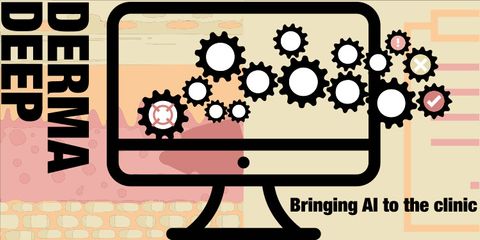
Background
Due to the tripling of skin cancer incidence over the past two decades, more skin biopsies and resections are performed than ever before. This has led to an enormous increase in workload for pathologists, who perform the microscopic diagnostics of skin samples. The biopsy and the resection need to be inspected by a pathologist, each typically consisting of multiple glass slides. Due to the increased incidence of skin cancer and the number of patients undergoing skin biopsies, the amount of work for pathologists has risen to unprecedented levels. At the Radboudumc, at least 25% of all diagnostic tissue samples are now skin neoplasia, of which most are non-melanoma skin cancers. Of these, basal cell carcinomas increased tenfold in the last twenty years. The increased workload is even worse in peripheral pathology labs that directly receive diagnostic material from GPs and primary care dermatologists. With the expected further increase in the incidence of skin cancer, this will become even more problematic in the future. Most microscopic skin analysis is not professionally challenging, but it is time-consuming and can lead to reduced time for more complex diagnostics and increased patient wait time. Machine learning, specifically deep learning, offers a path to automating the diagnoses of skin samples, reducing the pressure on pathologists and the cost of diagnosis, both in time and money.
We have developed an existing AI algorithm that can identify and subtype basal cell carcinomas, the most common skin cancer, with high accuracy. However, this algorithm must defer the long tail of more dangerous diseases to a pathologist using out-of-distribution detection to allow reliable automated triaging. Furthermore, the most time-consuming part of BCC diagnostics is the reporting, which needs to be added using vision-language modeling.
Tasks and responsibilities
- Develop effective and reliable out-of-distribution detection methods for histopathological diagnosis
- Integrate language and image models to produce interpretable AI-generated reports
- Work together with industry representatives and local IT to implement AI systems in the pathology IMS
- Collaborate with pathologists and (inter)national researchers to validate your developed algorithms in large cohorts.
- Have fun interactions with colleagues, present at local and (inter)national conferences, and develop yourself as an independent researcher.
Profile
You are a creative and ambitious researcher with an MSc degree in Computer Science, Data Science, Engineering, Technical Medicine, Biomedical Sciences or similar, with a clear interest in artificial intelligence and medical image analysis. Good communication and organizational skills are essential. Experience with deep learning and programming, preferably in Python, is a plus and should be evident from the (online) courses you've followed, your publication, your GitHub account, etc.
Organization
Computational Pathology Group
The Computational Pathology Group is a research group of the department of Pathology of the Radboud University Medical Center (Radboudumc). We are also part of the cross-departmental Diagnostic Image Analysis Group (DIAG) at Radboudumc, with researchers in the departments of Radiology and Nuclear Medicine, Pathology and Ophthalmology.
We develop, validate and deploy novel medical image analysis methods, usually based on deep learning technology and focusing on computer-aided diagnosis (CAD). Application areas include diagnostics and prognostics of breast, colon, prostate and lung cancer, among others. Our group is among the international front runners in the field, evidenced for instance by the highly successful CAMELYON and PANDA Grand Challenges which we organized and published in JAMA and Nature Medicine.
Radboudumc
Radboud university medical center is a university medical center for patient care, scientific research, and education in Nijmegen. Radboud university medical center strives to be at the forefront of shaping the healthcare of the future. We do this in a person-centered and innovative way, and in close collaboration with our network. We want to have a significant impact on healthcare. We want to improve with each passing day, continuously working towards better healthcare, research, and education. And gaining a better understanding of how diseases arise and how we can prevent, treat, and cure them, day in and day out. This way, every patient always receives the best healthcare, now and in the future. Because that is why we do what we do.
Read more about our strategy and what working at Radboud University Medical Center means. Our colleagues would be happy to tell you about it. #weareradboudumc
Application
Please apply before August 29th, 2024 here . Here, you can also find more information on the application process and what needs to be included.

